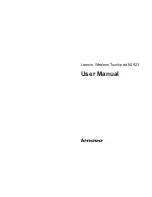
Warning and Safety Instructions
Do not drive over the blanket, leave in wet environments - such as rain or sea water,
or unattended where wind and theft may occur. If wind is likely to be an issue, use
the supplied holes around the edge to tie down or peg the blanket to a secure spot.
1. Risk of explosive gases: Working in the vicinity of a lead-acid battery is dangerous.
Batteries generate explosive gases during normal operation. For this reason, it is of
utmost importance that you follow the instructions each time you use the solar panel
charger.
2. Solar panel charger should not be used by persons with reduced physical, sensory
or mental capabilities unless they are supervised by a person responsible for their
safety.
3. Do not charge non-rechargeable batteries by the solar panel charger. It can
damage the regulator or solar panel charger or create harm for the operator. Only
use the solar panel charger DC18V for charging standard lead-acid, lithium-polymer,
Li-Fe, Gel and AGM type 12V batteries .
4. Never smoke or allow a spark or flame in vicinity of battery or engine. This may
cause the battery to explode.
5. Please keep the junction box out of water, if there is some water in the junction
box, please make sure it’s dry before using. Always clean the blanket after use to
keep cells efficient and at their maximum.
ADD ON SOLAR ACCESSORIES
How to connect the blanket to your devices
Now with a new Anderson connector - the 180w Baintuff solar blanket offers a simple
plug and play solution. The blanket comes with an Anderson cable and a Victron
PWM Solar Controller. The Solar Controller is normally used when there is no internal
controller in your equipment. ( ie: when you want to charge your car battery, or a
secondary battery in a trailer.)
DC18V OUTPUT
Connect the Anderson connector with solar charger controller and then connect the
Alligator clamps to your batteries. Always connect the battery you are wanting to charge
FIRST to the Solar Controller before connecting the Solar Blanket. The reason is the
Controller’s AUTO SENSING needs to know what voltage it has to be set at, before the
Controller can operate. The Controller can operate either at 12 or 24 volts Dc.
USING WITH THE BAINTECH POWERTOP
The grey Anderson connector on the Solar Controller is plugged into the Powertop’s
grey Anderson socket or the battery you are intending to charge. The red Anderson
socket is plugged into the cable from the blanket with the same. Plugging the grey
connector in first, allows the auto-select function to kick in and determined if the battery
is 12 or 24 volts before the blanket is connected.
PWM SETTINGS
The Victron Solar Controller has a SET button on it for selecting whether you want a
delayed output from Load-Output of the controller. This Load-Output is not normally
used, nor required for the Powertop.
If you do wish to use this function, follow the supplied Victron operating manual for
this. Generally the best setting for the Victron controller’s SET button - with the digital
display on the “ L” being the “ Dawn-to-dusk mode ”.
Visit www.baintech.com.au to find out more
ADD ON:
Baintech Watt Meter
Take the guesswork out of how
much power your solar panels are
generating. The Baintech Watt
meter once connected will give
you real time information on:
• Current (Amps/A)
• Voltage (Volts/V)
• Power (Watts/W)
Baintech PowerTop V3
Ready to go right off the shelf, this
fully portable plug-and-play system
features a 12V 135Ah AGM
battery with charging inputs for AC,
DC and solar.
BTWATT01
BTPTOP135V3




















